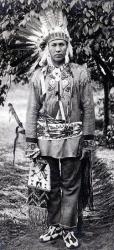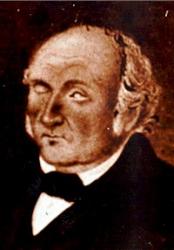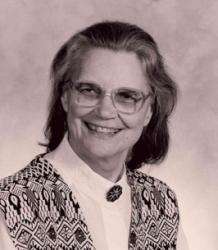Planning worship?
Check out our sister site, ZeteoSearch.org,
for 20+ additional resources related to your search.
- |
User Links
Person Results
John Logan
1748 - 1788 Person Name: John Logan, 1748-1788 Topics: Canticles and Scripture Paraphrases Author of "O God of Bethel, by whose hand" in The Book of Praise Logan, John, son of a farmer, born at Fala, Midlothian, 1748, and educated at Edinburgh University, in due course entering the ministry of the Church of Scotland and becoming the minister of South Leith in 1770. During the time he held this charge he delivered a course of lectures on philosophy and history with much success. While he was thus engaged, the chair of Universal History in the University became vacant; but as a candidate he was unsuccessful. A tragedy, entitled Runnamede, followed. He offered it to the manager of Covent Garden Theatre, but it was interdicted by the Lord Chamberlain "upon suspicion of having a seditious tendency." It was subsequently acted in Edinburgh. In 1775 he formed one of the Committee by whom the Translations and Paraphrases of the Church of Scotland was prepared. In 1782 he was compelled to resign his charge at Leith in order to prevent deposition, and finally, having passed on to London, he supported himself partly by his pen, and died there, Dec. 28, 1788.
[Also, see Bruce, Michael]
The names of Michael Bruce and John Logan are brought together because of the painful controversy which has long prevailed concerning the authorship of certain Hymns and Paraphrases of Holy Scripture which are in extensive use in the Christian Church both at home and abroad. During the latter years of Bruce's short life he wrote various Poems, and also Hymns for a singing class at Kinnesswood, which were well known to his family and neighbours, and were eventually copied out by Bruce himself in a quarto MS. book, with the hope that some day he might see them in print. Immediately upon his death, in 1767, Logan called upon his father and requested the loan of this book that he might publish the contents for the benefit of the family. This was granted. Not till three years afterwards did a certain work, containing seventeen poems, and entitled Poems on Several Occasions, by Michael Bruce, 1770, appear, with a Preface in which it was stated that some of the Poems were by others than Bruce. Bruce's father immediately pointed out the absence from the volume of certain hymns which he called his son's "Gospel Sonnets," and members of the singing class at Kinnesswood also noted the absence of hymns with which they were familiar. Letters of remonstrance and demands for the return of the quarto manuscript book of Bruce by the father remaining unanswered, led him eventually to see Logan in person. No book was forthcoming, a few scraps of manuscript only were returned, and Logan accounted for the absence of the book by saying he feared "that the servants had singed fowls with it." For a time the matter rested here, only to be revived with renewed interest by the publication, in 1781 (14 years after the death of Bruce, and 11 after the Poems, &c, were issued), of Poems. By the Rev. Mr. Logan, One of the Ministers of Leith. In this volume, an "Ode to the Cuckoo," a poem of exquisite beauty, and other poetical pieces which appeared in the Poems on Several Occasions, by Michael Bruce, were repeated, and claimed as his own by Logan. In addition, certain Hymns and Paraphrases were included, most of which were of sterling merit, and poetical excellence. It has been shown, we think, most conclusively by Dr. Mackelvie in his Life of Bruce prefixed to the Poems, 1837 and by Dr. Grosart in his Works of M. Bruce, 1865, that the "Ode to the Cuckoo," "Lochleven," and other poetical pieces were taken from MS. book of M. Bruce. The Hymns and Paraphrases, most of which were included in the Translations and Paraphrases during the same year, were also claimed for Bruce.
Until clearer evidence is brought forward on behalf of Bruce, the hymns, or paraphrases, following must be ascribed to John Logan: —
"Who can resist th'Almighty arm"; "In streets and op'nings of the gates”; "Thus speaks the heathen: How shall man"; "Take comfort, Christians, when your friends"; "The hour of my departure's come."
The following, which are found only in the Translations and Paraphrases of 1781, are claimed by W. Cameron for Logan, and have never been seriously disputed by the friends of Bruce, the second being original, the first a revise from the Translations and Paraphrases of 1745; and the third a revise of Doddridge and Dr. Hugh Blair:—
"Let Christian faith and hope dispel"; “Thus speaks the high and lofty One"; "What though no flowers the fig-tree clothe."
In addition, we see no cause to deny to Logan the few changes, and new stanza, which are found in Doddridge's "0 God of Bethel, by Whose hand."
Of the above hymns 5 are recasts of hymns in the Scottish Translations and Paraphrases of 1745. Those are: "Behold the mountain of the Lord " (see "In latter days the mount of God "); "When Jesus by the Virgin brought" (see "Now let Thy servant die in peace"); "Behold the Ambassador divine" (see "Behold my Servant, see Him rise"); "Let Christian faith and hope dispel" (see “Now let our souls ascend above"); and "What though no flowers the fig-tree clothe" (see "So firm the saints' foundation stands").
…It is curious to note that every hymn which we have ascribed to M. Bruce has come into more or less extensive use outside of the Translations and Paraphrases, and that not one which we have ascribed to Logan, except "Let Christian faith and hope dispel," and “Take comfort, Christians," &c, is found beyond that work, unless we give to Logan the plaintive "The hour of my departure's come" (which Dr. Grosart claims for Bruce), and the recast "O God of Bethel, by Whose hand," whose success is due to Doddridge. This is the verdict of 100 years' use of those hymns, and shows conclusively the poetic strength of Bruce and the weakness of Logan.
--John Julian, Dictionary of Hymnology (1907)
================
http://en.wikipedia.org/wiki/John_Logan_%28minister%29
John Logan
Alan Gray
1855 - 1935 Person Name: Alan Gray, 1855-1935 Topics: Canticles and Scripture Paraphrases Composer (descant) of "HANOVER" in The Book of Praise Born: December 23, 1855, York, England.
Died: September 27, 1935, Cambridge, England.
Buried: Trinity College, Cambridge, England.
Alan Gray (23 December 1855, York – 27 September 1935, Cambridge) was a British organist and composer.
Born in York, he attended St Peter's School in York and Trinity College, Cambridge. From 1883 until 1893 he was Director of Music at Wellington College. In 1893 he returned to Cambridge to be organist at Trinity College, and remained organist there until 1930.
Among his compositions are liturgical music for Morning and Evening Prayer and the Office of Holy Communion for use in the Church of England according to the Book of Common Prayer, including an Evening Service in f minor, a setting of Holy Communion in G, several anthems, including 'What are these that glow from afar?', and a collection of descants to various hymn tunes, several of which are still in use today (Common Praise (2000) includes four). He also composed a number of items for organ, for violin solo, and for voice and orchestra to religious and secular texts.
--en.wikipedia.org/wiki/
Alan Gray
Philip Frazier

1892 - 1964 Person Name: Philip Frazier 1892-1964 Topics: Canticles and Scripture Paraphrases Translator (English) of "Many and great, O God, are your works" in The Book of Praise A full blooded Sioux, Frazier was born in a tepee, coming from a line of missionaries.
His grandfather was Artemas Ehnamani, a Santee Dakota who was converted to Christianity by missionaries while in prison after the U.S.-Dakota conflict of 1862. Ehnamani became pastor of the largest Dakota church, Pilgrim Presbyterian.
Philip attended the Santee Indian School, Yankton College Academy, the Northfield Mount Hermon School in Massachusetts, and Dartmouth College (leaving the latter to join the army).
He received degrees from Oberlin College (1922), Chicago Theological Seminary (BDiv 1925), and Dartmouth College, Hanover, New Hampshire (DD 1964).
Ordained in 1926, he ministered among the Sioux, and at the end of his life, was supervisor of the Sioux Indian Mission of Standing Rock Reservation, North Dakota.
© The Cyber Hymnal™ (hymntime.com/tch)
Philip Frazier
Neil Dougall

1776 - 1862 Person Name: Neil Dougall, 1776-1862 Topics: Canticles and Scripture Paraphrases Composer of "KILMARNOCK" in The Book of Praise Born: December 9, 1776, Greenock, Renfrewshire, Scotland.
Died: October 1, 1862, Greenock, Scotland.
Buried: Greenock, Scotland.
Neil’s father, wheelwright Neill Dougall, was drafted into the army, and died in Ceylon (now Sri Lanka) when his son was only four years old. At age 15, Neil became an apprentice on the ship Britannia. In 1795, while he was loading a gun to fire the second volley of a salute to commemorate Lord Howe’s victory over the French, an explosion blinded him and took his arm. After recovering, he began his musical career. In 1798, he attended a singing class under Robert Duncan, and in the fall of the next year opened his own class, which he ran until 1844. He gave annual concerts in Greenock from 1800 [sic, Frost] to 1860.
--www.hymntime.com/tch
Neil Dougall
John Wainwright
1723 - 1768 Person Name: John Wainwright, 1723-1768 Topics: Canticles and Scripture Paraphrases Composer of "YORKSHIRE" in The Book of Praise John Wainwright United Kingdom. He published a collection of Psalm tunes, anthems, chants, and hymns. A talented musician, the following year he was appointed organist and singer at Manchester Collegiate Church (later the Manchester Cathedral). His son, Robert, succeeded him as organist after he died.
John Perry
John Wainwright
Henry Lahee
1826 - 1912 Person Name: Henry Lahee, 1826-1912 Topics: Canticles and Scripture Paraphrases Composer of "NATIVITY" in The Book of Praise Born: April 11, 1826, Chelsea, London, England.
Died: April 29, 1912, London, England.
Lahee studied under John Goss and William Sterndale Bennett. He played the organ at several churches, including Holy Trinity Church, Brompton (1847-74). He won prizes for his compositions in Bristol, Manchester, Glasgow, and London, and set to music poems by Edgar Allen Poe ("The Bells"), Henry Wadsworth Longfellow ("Building of the Ship") and Alfred Tennyson ("Sleeping Beauty"). His works include:
Metrical Psalter, with William Irons, 1855
Famous Singers of Today and Yesterday, 1898
One Hundred Hymn Tunes
Sources:
Frost, p. 680
CS Concordance, pp. 246-47
Nutter, p. 460
--www.hymntime.com/tch
Henry Lahee
Rae E. Whitney

1927 - 2023 Person Name: Rae E. Whitney, 1927- Topics: Canticles and Scripture Paraphrases Paraphraser of "What are these wounds in your hands, dear Saviour" in The Book of Praise Rae E. Whitney, 96, of Scottsbluff died Thursday, November 16, 2023, at the Residency in Scottsbluff. Her memorial service will be held 10:00 A.M. Monday, November 27, 2023, at St. Francis Episcopal Church with Reverend Erin Rath officiating. Interment of her ashes will follow at West Lawn Cemetery in Gering. Memorials may be made to the Lied Scottsbluff Public Library or to the church.
Rae was born at Chippenham, Wiltshire, England May 21, 1927, the only daughter of Alice Martha “Pat” Davis and Arthur James Phillips. Educated at Chippenham Grammar School and the University of Bristol, she received her B.A. (Englis Honors) degree in 1948 and Certificate of Education in 1949. She was lady President of Bristol University Branch of the Student Christian Movement 1947-48.
Rae taught in secondary schools in Bicester, Oxfordshire in Wotton-under-edge, Gloucestershire and in London. During this time, she also served as a lay preacher in various village chapels. She had a life-long concern for the greater understanding between churches, and from 1958-60 she lived at St. Basil’s House in London as a resident Secretary of the Fellowship of St. Alban and St. Sergius, working both with Eastern Orthodox Churches and those of the west.
In June of 1960, on a coach tour of Italy, heading for the Passion Play in Oberammergau, Austria Rae met the Rev Clyde E. Whitney, Rector of St. Andrew’s Episcopal Church, Scottsbluff, NE. They were married in Chippenham on December 31, 1960. Scottsbluff then became her home.
The Whitneys started the local observance of the Week of Prayer for Christian Unity in 1962 and during the mid-sixties worked to establish The Retreat House of the Transfiguration at Bayard. After Father Whitney’s retirement in 1969, they served the English-speaking congregation in Guatemala City, Central America for 12 months. From 1979-85 they were volunteer local coordinators for the American Bible Society.
During his 23 years of retirement, when Clyde was called to serve various churches in Nebraska and Wyoming, Rae was licensed to help her husband as a lay reader and eucharistic minister. She was on the Board of Friends of the Scottsbluff Library for a long time and served on the Editorial Board of Bosom Buddies Network, Regional West Medical Center. She led several weekly Bible classes for many years. She was elected President of Church Women United, Scotts Bluff County 1967-68 and CWU State Vice President 1981-82. She became Diocesan State President of the Episcopal Church Women 1976-77 and served on the national Episcopal Church’s Women’s Triennial Committees 1973-79. She was appointed Worship Chairman for the 1979 Triennial Denver.
Soon after her arrival here, Rae became interested in local history and in the 1980’s wrote “A Portrait of Dr. Georgia Arbuckle Fix”, which has been presented over fifty times in the region. Rae was also a free-lance writer of reviews, articles, and poems, but was most widely known for her hymn writing. Of her several hundred hymn texts, some have found their way into several denominational hymnals and supplements in the United States, Canada, Scotland, England, Hong Kong, and Australia. Four collections of her hymns have been published by Selah Publishing Co.
Rae was a member of St. Francis Episcopal Church (formerly St. Andrew’s), YMCA, Friends of the Library, American Association of University Women, the Cooperative Ministries Council, Church Women United, Fraternity of Prayer for Christian Unity, Fellowship of St. Alban and St. Sergius and the Hymn Societies of the US, Canada, Great Britain, and Ireland.
After the Whitneys moved to Northfield Villa, Gering in 1988, Rae soon became editor of the Villa’s newsletter. Clyde died April 22, 1992, and in 1993 Rae moved to the Residency in Scottsbluff and continued to edit the monthly newsletter for both retirement communities.
Rae was preceded in death by her husband; parents; her young brother Kenneth and her special friend, Edward Doemland of Milwaukee, WI.
She is survived by cousins in England and many valued friends, especially Eva Carne, of Ellensburg, WA and Jane Wisniewski, of Scottsbluff, NE. --Obituary
Rae E. Whitney
Harold W. Friedell
1905 - 1958 Person Name: Harold Friedell, 1905-1958 Topics: Canticles and Scripture Paraphrases Composer of "UNION SEMINARY" in The Book of Praise Harold Friedell (May 11, 1905, Jamaica, Queens, NY- February 17, 1958, Hasting-On-Hudson, NY) was an American organist, choirmaster, teacher, and composer. At an early age, he served as organist at First Methodist Episcopal Church (Jamaica, Queens) and studied organ with Clement Gale and David McK. Williams. He later served as organist at Calvary Church (New York), organist and choirmaster at Saint John’s Church (Jersey City, N.J.), organist and choirmaster at Calvary Church (New York), and finally organist and master of the choir at Saint Bartholomew’s Church (New York). Friedell also taught on the faculty of the Union Theological Seminary School of Sacred Music (New York). As a composer, Friedell composed works for organ, orchestra, and choir, as well as hymn tunes, descants, and music for solo voice.
Friedell composed the choral anthem "Draw us in the Spirit's Tether" in 1949, from which the hymn tune "Union Seminary" was taken."
Jimmy Thompson
Harold W. Friedell
Dale Grotenhuis
1931 - 2012 Person Name: Dale Grotenhuis, 1931- Topics: Canticles and Scripture Paraphrases Harmonizer of "ARIRANG" in The Book of Praise Dale Grotenhuis (b. Cedar Grove, WI, 1931; d. Jenison, Mi, August 17, 2012) was a member of the 1987 Psalter Hymnal 1987 Revision Committee, and was professor of music and director of choral music at Dordt College, Sioux Center, Iowa, from 1960 until he retired in 1994 to concentrate on composition. Educated at Calvin College; Michigan State University, Lansing; and Ohio State University, Columbus; he combined teaching with composition throughout his career and was a widely published composer of choral music. He also directed the Dordt choir in a large number of recordings, including many psalm arrangements found in the 1959 edition of the Psalter Hymnal.
Before coming to Dordt, Grotenhuis taught music at Christian high schools in Washington and Michigan. Under his direction, the Dordt College concert choir participated in annual tours that took members throughout the United States, Canada and Europe. He loved the church and the music of the church. His favorite song was "All Glory Be to God on High".
Bert Polman (last two sentences from Joy Grotenhuis, daughter-in-law)
Dale Grotenhuis
John Dykes Bower
1905 - 1981 Person Name: J. Dykes Bower, 1905-1981 Topics: Canticles and Scripture Paraphrases Composer of "LUDGATE" in The Book of Praise Sir John Dykes Bower CVO (13 August 1905 – 1981) was an English cathedral organist, who served in Truro Cathedral, Durham Cathedral and St Paul's Cathedral.
John Dykes Bower was born on 13 August 1905 in Gloucester. He was one of four brothers. Stephen Dykes Bower became a famous church architect.
He was educated at Cheltenham College and studied organ under Herbert Brewer, and was organ scholar at Corpus Christi College, Cambridge from 1922.
He was organist of:
Truro Cathedral 1926 - 1929
New College, Oxford 1929 - 1933
Durham Cathedral 1933 - 1936
St Paul's Cathedral 1936 - 1968
--en.wikipedia.org/wiki/
John Dykes Bower


 My Starred Hymns
My Starred Hymns

